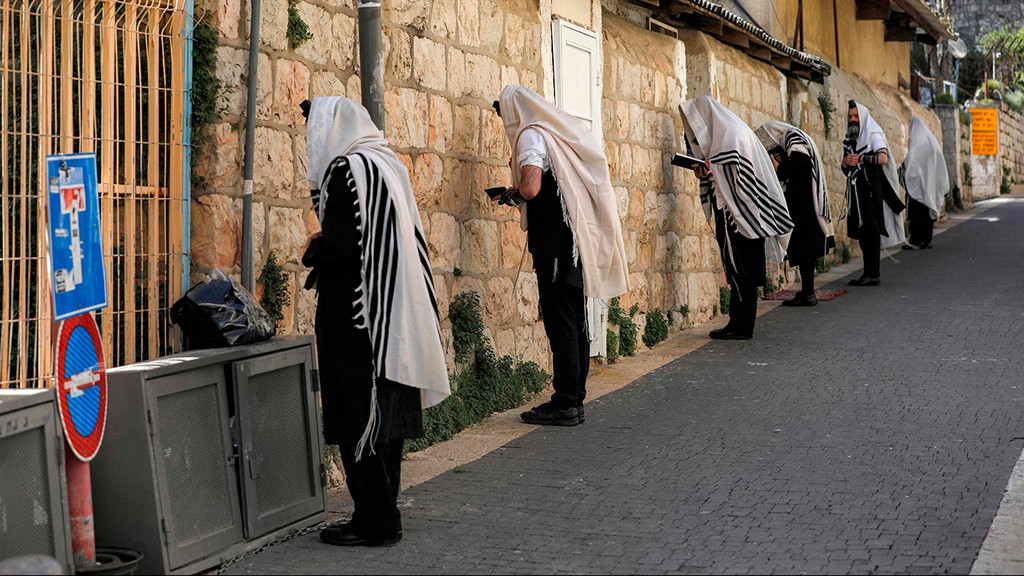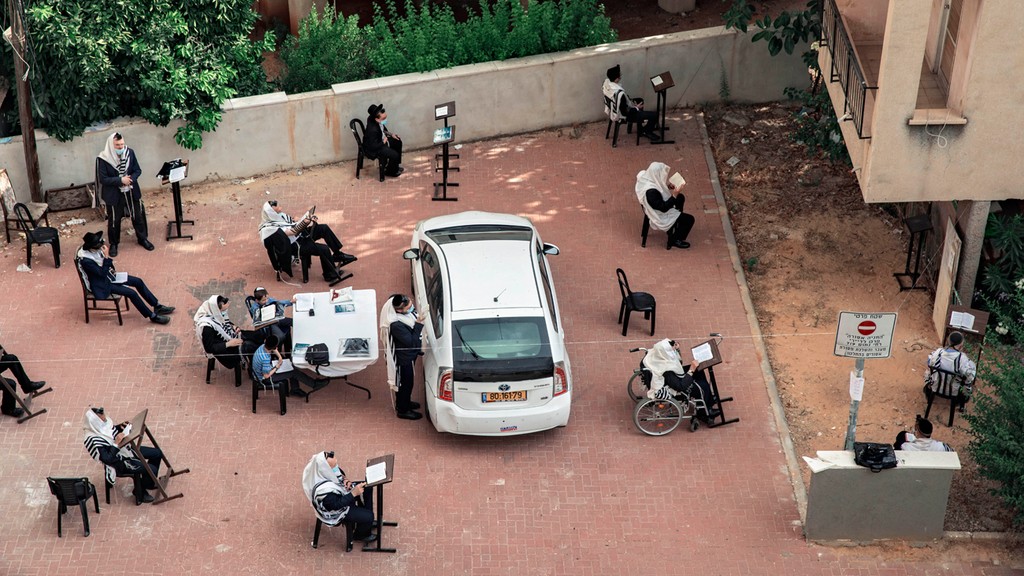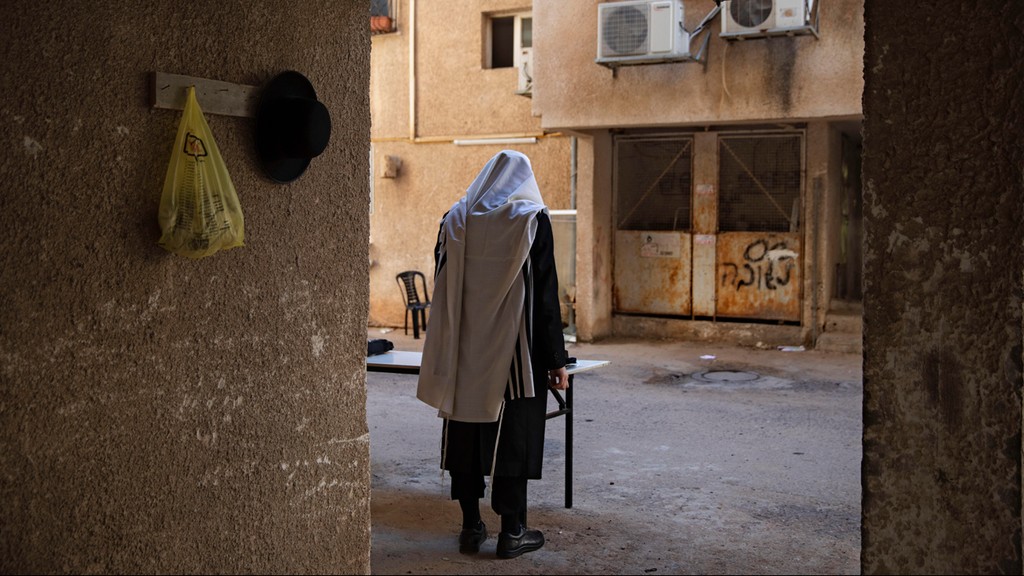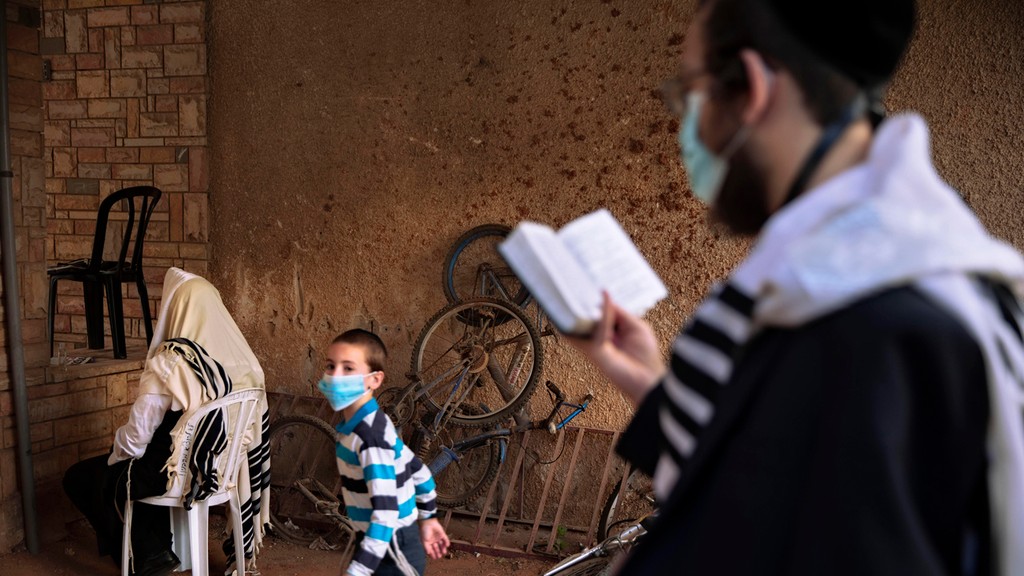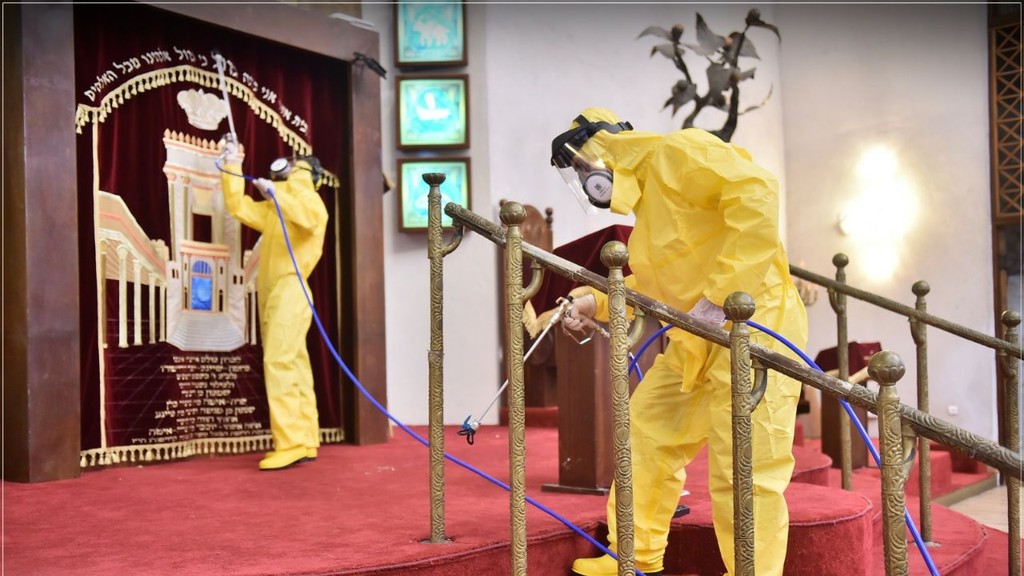Hot muggy August is painting the summer sky the same color it always does, but unlike years past, the thoughts of the Israeli people are fixed on more than the searing heat.
Many are looking at their calendars and don't see August. No, they see the month of Av, the fifth month of the Jewish calendar according to the Hebrew scriptures. After Av comes Elul with the promise of the High Holidays, then suddenly it's Tishrei, bringing with it Rosh Hashanah and Yom Kippur.
This year though, the weight of the High Holidays is greater than ever before. During the days of the coronavirus pandemic, the Jewish world was dealt a terrible blow.
Both in the number of the dead all over the world, and also in the most basic structures of communal life, of culture and of family.
Synagogues have been shut down, and religious ceremonies have been reduced to the barest minimum possible.
This is without mentioning the biggest blow inflicted right to the beating heart of Judaism - prayer.
The gap between the prayers has been reduced to nothing, but a quick litany attended by only two dozen people who cannot even touch the sacred Torah scroll during the holiness and power of the High Holy Days will be truly saddening.
Beyond the natural difficulties that the pandemic brings, the logistical preparations for the holidays has become nigh impossible.
Unlike during regular Shabbat, during Rosh Hashanah and Yom Kippur the prayers are long, and some are performed during a complete fast. This could turn praying outside without proper conditions into an unbearable experience.
Also, the number of worshipers compared to the relatively small number of Torah scrolls and cantors to lead services makes it very difficult to adhere to regulations and pray in small capsules.
Also, unlike regular holidays, on Tishrei holidays people from all over Israel come to the synagogues to partake in tradition. This includes men and women from all sectors - religious, traditional and secular - marking the most significant days of the Jewish calendar.
Are we sentenced to have exceedingly difficult High Holidays this year, with scores forced to give up their participation in the prayers, and that intimate moment with the ancient text?
In a Jewish and democratic state, does the right to demonstrate outweigh the right to pray? If thousands can gather out in the open-air protest, why can’t a few dozen gather to pray?
It should be noted that the first to pay a price for adhering to the guidelines are not actually the regular population of worshipers. They will probably find one capsule or another to pray in.
No, those that will pay the price are those who go to the synagogue only once a year – the secular and traditional populations.
They are the ones who will be inadvertently removed from the prayers. IN particular the women who are often forced to vacate their place in order to allow a group of men to form a minyan (a quorum of at least 10 males past bar mitzvah age).
6 View gallery
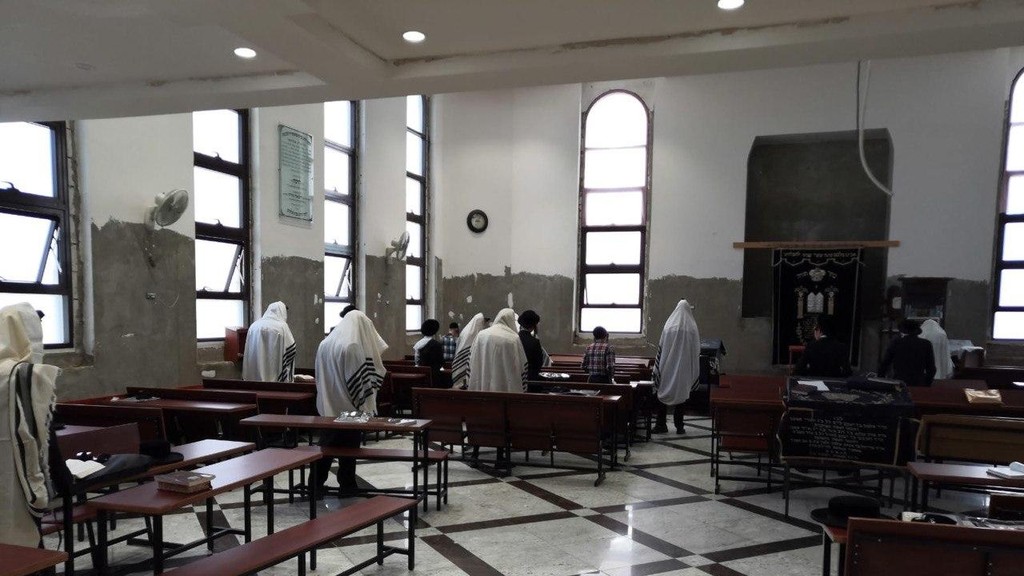

Men pray in a Beit Shemesh synagogue before it was shuttered by the police
(Photo: Israel Police)
The issue of prayer during the High Holidays should not remain an internal religious matter, forgotten until the very last minute at the end of Elul.
The State of Israel and the local government must find solutions right now in order to allow the public to mark these most significant of days.
Regulations wise, the number of allowed worshipers in each capsule should be significantly increased in open spaces.
If thousands can gather outside the prime minister's residence in Jerusalem, prayer capsules can be increased.
Local authorities need to prepare open and covered public areas for public prayers, to provide worshipers with mats, chairs and fans in order to make prayers outside in the heat tolerable.
Prayer is not a luxury. Forgiveness is not a privilege. The hundreds of thousands who vote with their feet every year prove that this is not a sectoral matter, but a Jewish rite that deserves consideration.
It is the twilight of the month of Av, now is the time to prepare properly.


